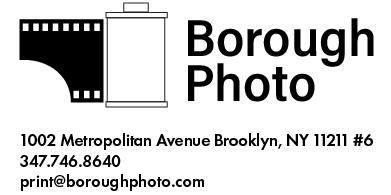Best Practices
File preparation for achieving highest quality prints
This section is a general guide for getting the highest quality prints with a quick turnaround. If this section is confusing to you feel free to as us questions, (here is our contact us page) or just send us your file (file upload form) as is and we can prepare it for you.
Prepare your files at 300 dpi
Our optimal printing resolution is 300 dpi. When resizing your image set the resolution to 300 dpi at the desired print size. If your image will not achieve 360 dpi natively set it at its highest resolution it can get and we will do the final enlarging.
If your image is under 240 dpi at the desired print size, set the resolution to 240 dpi as this is the best resolution to print at for lower resolution files.
16 bit TIF or PSD files are best
If you are editing your file it is best to save as a TIF or PSD. When sending single-layer Files you can use TIF or PSD interchangeably, however, multi-layer files should be sent as PSD when possible. We can work with TIF files with multiple layers, but keep in mind saving a TIF with multiple layers will have a larger file size than a PSD with multiple layers.
Even if your original image is a JPG, it is best to save it as a TIFF or PSD after editing as every time you save a JPG the image quality will reduce.
The same goes for 16-bit. Especially for color editing, if your image is 8-bit originally before doing color editing, convert your file to 16-bit before editing. If you are not changing any color in your image, sending us an 8-bit file is appropriate and will achieve a smaller file size.
Adobe RGB (1998) Color Space
When editing and exporting for printing with us, it is best to use the Adobe RGB (1998) Color space. Sometimes you will see this in your editing program as AdobeRGB or AdobeRGB98. Adobe RGB (1998) has about 35% more colors than sRGB that our printers can take advantage of. You may see your files as other color spaces as well, some common ones you may see are “Display” or “P3”. If you are unsure about the color space leave it as is and we can convert it for best printing and keeping your colors accurate.
Sharpening
Sharpen your photos as you would like to see them, you do not need to overcompensate for sharpness for printing. We apply “Output Sharpening” to all images unless they are already over-sharpened. Output sharpening is a process of sharpening that compensates for the loss of sharpness that happens when a print is made. We would recommend leaving this process to us.
